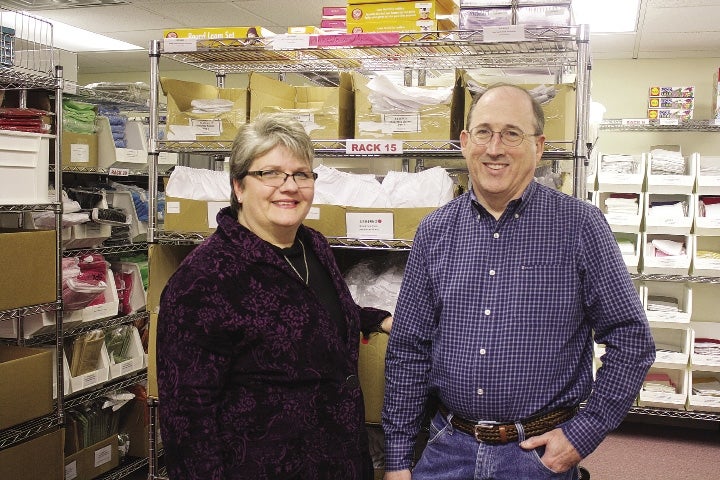Is owning and operating your own business all it’s cracked up to be?
According to novice business owners in Central Massachusetts, the answer is “yes,” but satisfaction and rookie struggles aren’t mutually exclusive.
“It’s not for the faint of heart,” said David Price, owner of Milford-based home health agency BrightStar Care, a franchise he bought and launched in 2010.
In some regards, Price said business ownership is daunting. Knowing he’s the source of income for 80 people, for instance, is stress-inducing. And as CEO of a young organization, Price continues to wear many hats, sometimes driving health aides to see patients in bad weather.
While making BrightStar fly has been easier than Price imagined as far as networking to generate new business, there were a few early operational hiccups. For starters, he would have hired a chief financial officer earlier to help handle the myriad weekly transactions a home health agency generates.
“Keeping up with that detail was more complicated than I thought it would be,” said Price, who spent much of his career on the corporate side of high-tech manufacturing.
With a few years under his belt, Price is happy with his entrepreneurial endeavor. And with plans to grow, he’s closing in on the end of the five-year window during which the U.S. Small Business Administration estimates about half of new small businesses and franchises fold.
But there is reason to believe that people who buy businesses, or in Price’s case, a proven franchise, have a leg up. So says Nancy Cantor, a MetroWest-area business consultant and founder of The Dream Factory, a women’s networking group, who has worked with a number of entrepreneurs as they’ve bought and launched businesses.
Cantor said that, in her experience, people who design their own business concepts often hope to make a living off their passion. Business buyers, on the other hand, are coming at it from a practical perspective and see buying a business as an investment.
“That’s much more of an analytical process and people tend to do a lot of good research on that,” Cantor said.
Cantor stopped short of estimating that people who buy existing businesses will be more successful than those who start from scratch. Much of it depends on the individual, she said, and how much energy he or she is willing to put into their work. As in many of life’s ventures, the ability to persevere is the common denominator for long-term survival, according to Cantor.
“You do need to have the fortitude to go through the peaks and valleys of owning a business,” Cantor said.
How a broker can help
That has been true for Sarah Kochanowski and her husband, Steve Ostroskey, who in 2004 bought an online business that sells embroidery materials to consumers and businesses. The business, Embroider This, operates under an umbrella company, Bobbin Inc., which has operations in Framingham and Holliston.
Kochanowski and Ostroskey used a business broker to find and buy the California-based business, but have since cultivated their own business-buying savvy. Over the last decade, the couple has acquired additional online businesses and brought them into the fold. Today they have five employees and annual revenue of $1.5 million.
Kochanowski said it all came together serendipitously. But she also thinks her approach to running the business has been crucial to success; as a quilter and doll marketer, Kochanowski has blended her passion for art with a shrewd eye for running a business.
“I think the biggest mistake people make is being too blinded by their dream and unwilling to look at the facts and financials and what the numbers are telling them,” Kochanowski said.
While she’s avoided that trap, and exceeded her expectations for business success, Kochanowski said every aspect of buying and running the company has been more difficult than she imagined. What was supposed to be a mom-friendly alternative to her corporate job became all-consuming.
“I would have liked someone like me to talk to when I wanted to buy a business,” Kochanowski said.
To that end, Cantor, the consultant, advises starting at the source of the business — the previous owner, who is often the founder. Conscientious owners will work with buyers to ensure a smooth transition, Cantor said. In many cases, they’ll stay on under new ownership as an employee or consultant for a while, which can help the new owner.
“The more you can get help from that person that has the relationship with the customers, I think the better off you will be,” Cantor said.
How a long-time dream came true
For Elvis Dyer, the new owner of Sturbridge Coffee Roasters in Southbridge, the education began before he bought the business in July. Dyer, a coffee connoisseur, had dreamed of owning a business since childhood. He offered to buy the coffee shop a few times over the last two years and even persuaded the owner to show him how to roast the coffee before he agreed to sell the business.
But that’s where the former owner’s influence ended. Dyer opted to revamp the shop, closing it during August before reopening under the same name. After rebranding and an interior makeover, Dyer thinks he probably would have spent about the same amount of money and time if he had started the business from scratch. What he thought would take a couple of weeks ended up taking a month, with Dyer putting in 15-hour days and spending about $25,000.
Despite this realization, Dyer is unfazed. He thinks he got a good deal, and the best part is that he doesn’t have to answer to a boss as he did when he worked in the automotive and financial sectors.
“There wasn’t complete happiness for me and usually it was because there was a boss dictating what I was to do,” Dyer said.

